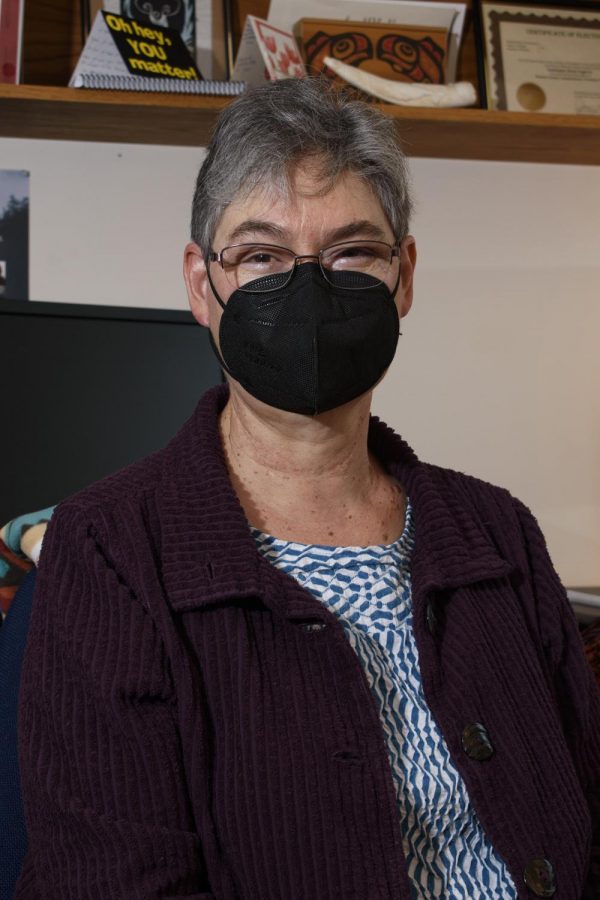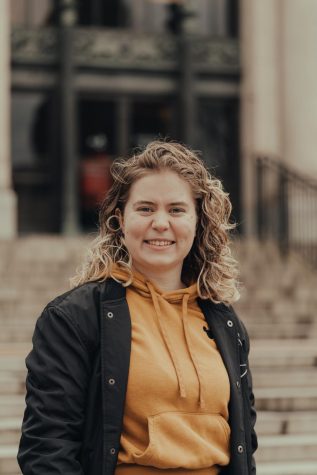Local elected officials react to new drug decriminalization laws
February 12, 2021
Measure 110 is now in effect across the state of Ore., which decriminalizes small amounts of drugs, leaving local elected officials and law enforcement cautiously optimistic about the measure’s effects.
This bill was introduced during last year’s election season, pushing for the decriminalization of trace amounts of all drugs. This measure was passed by over 1.3 million people or 58.46% of Oregon voters. Over nine hundred thousand, or 41.54% of Oregon voters, voted against the measure.
Starting Feb. 1, the implementation of this new law means that anyone found with small amounts of any drug, whether legal or illegal, will not face jail time. Instead, those in possession of illegal drugs will have the choice of either being fined $100 or going into treatment funded by the state.
This measure, however, does not legalize drugs. All drugs that were not already legalized before the passage of this measure are still not legalized; the measure only decriminalized them. The list of decriminalized drugs includes: heroin, cocaine, methamphetamine, ecstasy, lysergic acid diethylamide (also known as LSD or acid), psilocybin, methadone and oxycodone.
“[There’s a] difference between decriminalization and legalization, but those two get confused all the time,” said Joan Demarest, circuit court judge for Benton County. “And, in fact, I was disappointed to see some of the statements approved by the secretary of state in the voter’s pamphlet that talked about legalization, which is not the case. It’s just not a crime punishable by jail.”
This measure also does not change the law for drug dealers, or anyone found in possession of a large quantity of drugs.
“While the law concerning the possession of controlled substances has changed, the laws prohibiting the manufacturing and distribution of controlled substances have not,” Ryan Eaton, professional standards and support division lieutenant at the Corvallis Police Department, said via email.
While hesitant, Demarest is cautiously optimistic and hopeful about this new law and the effects that it will have on the local community.
“Well this is a really far-reaching measure and there’s a lot of logistics that have to be ironed out,” Demarest said. “Conceptually I think it is very promising… Hopefully it will be as successful as people envision it to be. I think it will help shift the focus of law enforcement and the courts away from addicts and more toward other crimes, which I think is a good thing.”
Xan Augerot, commissioner and chair of the Benton County Board of Commissioners, also said that even though the measure seemed to come from a good place, she is skeptical about the results it will yield.
“Drugs are a big black market business, and I have long believed that legalization might allow for a more rational approach to treating substance use disorders, on the model of how we treat alcohol,” Augerot said via email. “That said, I believe that Measure 110 was well-intentioned and poorly-crafted, largely by out-of-state proponents of decriminalization. The marijuana tax dollars that the measure proposes to use currently go to cities, counties, and school districts – much of it is used for preventative work with respect to substance use disorders and mental health.”
Augerot additionally mentioned concerns about the $100 fine not being steep enough to encourage people to go to assessment, the municipal courts not being prepared for the influx of cases, and how it will affect minors.
“Another issue of concern is the effect on children and youth,” Augerot said. “Many children in the foster care system come from families affected by addiction – we expect to see that situation become worse in the near term. And the law is silent on the issue of minors in possession.”
Until the long-term effects of the measure can be analyzed, what will happen in relation to these concerns will stay mere speculation.
While CPD was contacted for their personal opinions on this new law as well, they were unable to share any opinions on it, but did confirm that they had been preparing their officers for this new change.
“In conjunction with the Benton County District Attorney’s Office, and utilizing documents from the Oregon Department of Justice, a training was prepared outlining the changes in the law and how law enforcement will conduct legal enforcement in light of those changes,” Eaton said.
Additionally, while Eaton said that any increase or decrease in drug use due to the new law will not be known immediately, there is some concern about drug use or drug related crimes becoming more prevalent.
“Local law enforcement does expect to see an increase in drug-related crimes, particularly driving under the influence of intoxicants (DUII) and drug-fueled burglary and theft,” Augerot said.
However, Demarest said there is another possibility that decriminalizing drugs could actually decrease the amount of drug related crimes because those people won’t have to deal with huge court fines and will get free healthcare and treatment for their controlled substance issues. Thus, they won’t be as financially strapped and desperate for money.
In many ways, Oregon is a leader in the area of decriminalizing drugs. While it has been done in other countries, no other state in the United States of America has decriminalized drugs and, thus, Oregon will likely face many challenges with regards to this new law.
“I sincerely hope that this approach will allow for earlier and more effective intervention, before people succumb to life-altering addictions,” Augerot said. “[But] I fear that, for many people, it will mean that they don’t get the help they need until they have been apprehended for other crimes.”



















































































![Newspaper clipping from February 25, 1970 in the Daily Barometer showing an article written by Bob Allen, past Barometer Editor. This article was written to spotlight both the student body’s lack of participation with student government at the time in conjunction with their class representatives response. [It’s important to note ASOSU was not structured identically to today’s standards, likely having a president on behalf of each class work together as one entity as opposed to one president representing all classes.]](https://dailybaro.orangemedianetwork.com/wp-content/uploads/2025/03/Screenshot-2025-03-12-1.00.42-PM-e1741811160853.png)
























